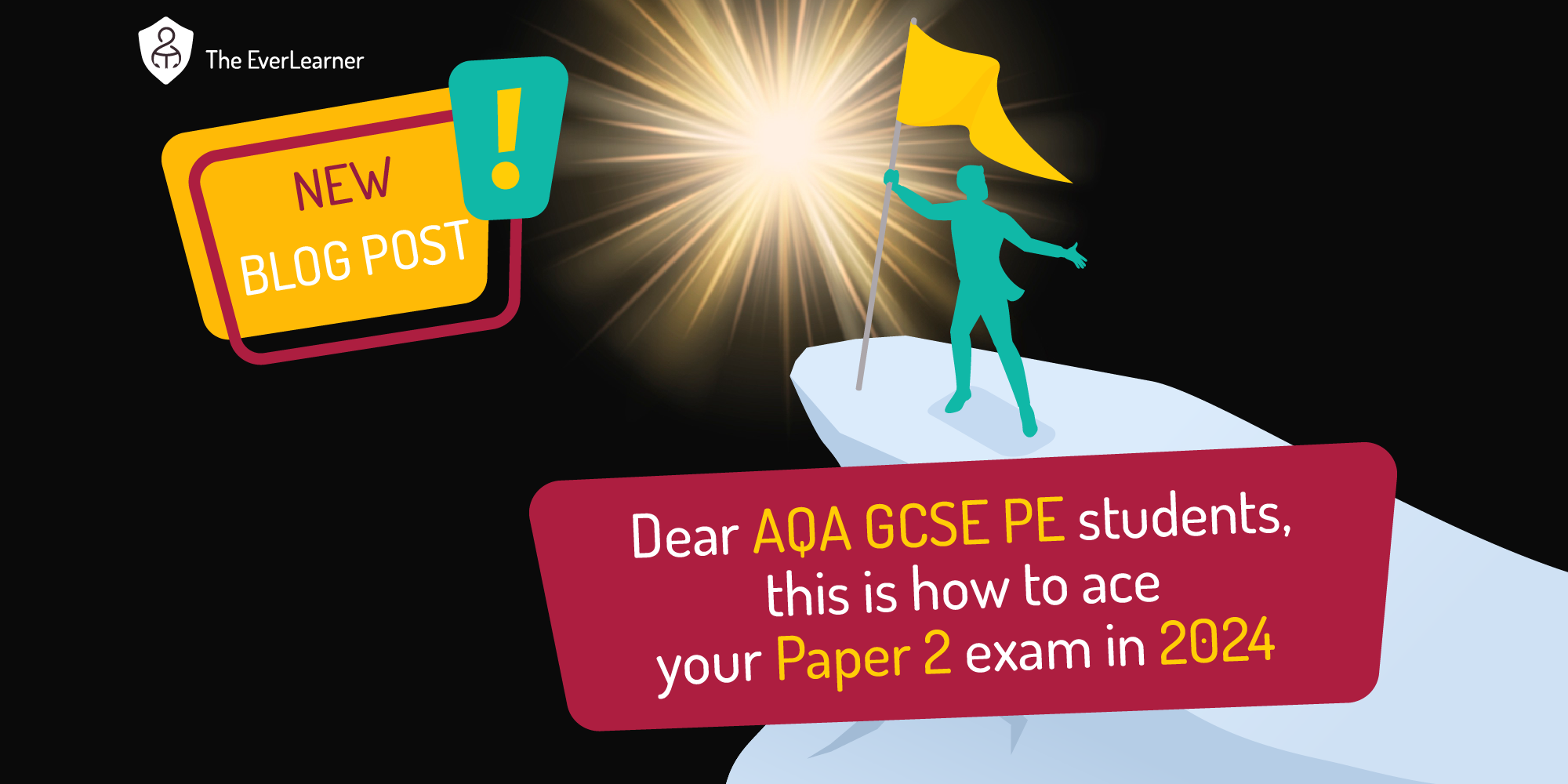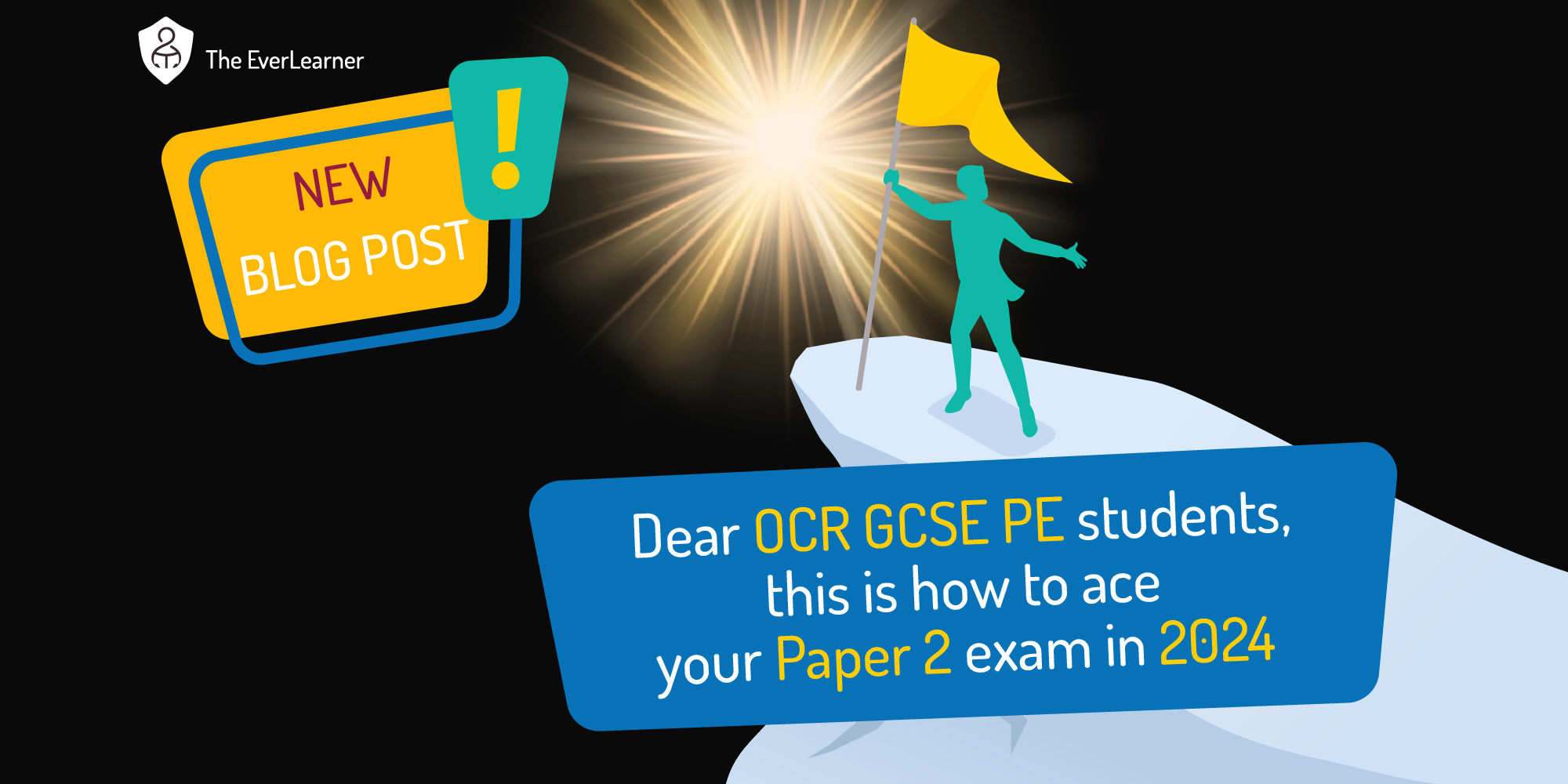How to support students when a PE or Sport exam goes badly
Editor's note: This post was originally released in June 2022 and has been updated to make it relevant for teachers supporting their students with their 2024 PE and Sport exams.
Dear PE teachers,
I feel slightly bad putting this post out on the very day of GCSE PE Paper 1 exams but the reality is that, sometimes, things don't go to plan. Therefore, I'm writing this post to support PE and Sport teachers, as well as their students, in the ✱worst case scenario. As you'll read below, I have my own, personal experiences with times when PE exams go badly - we all have, I would imagine, and I am arguing below that there is both good and bad practice when this occurs.
✱Situation-specific. Of course, there are many worse things in the world than a disappointing PE exam.
Did your PE or Sport exam not go quite to plan?
Some of the toughest moments in my PE teaching career have been the days when students exited their PE exam and were dissatisfied with what had just happened. I have experienced this many times. I have probably experienced this with at least some students for every year I have been a PE teacher. For ten years of my career, I managed the biggest A-level PE cohorts in the country, with 300 examining students per year. I have dealt with tears, anger, frustration and, on one occasion, violence (towards an object, not a person) because of the experience of an exam.
Amongst other things, students have told me the following negative reports after an exam that has gone badly:
- "It’s not on the spec, Sir, but it was on the paper."
- "We haven’t covered that in class, Sir."
- "You told us it would be on the paper and it wasn’t."
- “The questions were worded really badly.”
- “I didn’t have enough time to complete it.”
- “I ran out of time when writing the extended / synoptic / essay question.”
- “I missed a page on the paper. I didn’t know it was there.”
- I failed, Sir. What’s the point in even trying on Paper 2?”
Now, not all students will report these things and many students will tell you “not too bad” or “yeah, it was fine overall” but, when students have told me the things above, it has had a deeply negative impact on me. The reason it does so is a positive one: I care. I care about them and I care about their future. I also care about my subject and I see my role as a teacher to provide positive rather than negative outcomes.
How can we guide a student on the best next step action?
The points below are written to support teachers in this scenario.
How can you support your students after a negative exam experience?
My strong belief is that students, in general, tend towards the negative when they exit exams. They over-focus on the negative and under-focus on the positive. This, according to Schopenhauer, is pure human nature built on the need for survival. Schopenhauer argued that human beings are biologically wired to focus harder on negatives than positives and used the example of a painful finger to express this. Imagine doing some DIY and imagine you are striking a nail with a hammer. Your hand slips and you strike your finger. For the following minutes all you can think about is your finger. Despite being 99.9% physically well, you can think of nothing but the finger. Right? This is how students feel when they exit an exam. They can do nothing but focus on the missed / hard / confusing / concerning questions(s) and ignore completely those that went well. This is normal - this is human nature - this is to be expected… and it is the teacher’s role to not panic and take literally the reports and to reassure the student by asking open questions such as:
- “Tell me about the exam overall.”
- “Okay, so that bit went badly. Does that represent the whole paper?”
- “Which section was your strongest?”
- “Can you recall other questions? Tell me about them.”
In each case, I am asking the student to concentrate on the paper as a whole, rather than the “sore finger”. But, importantly, this is coming from them and I am coaching them to think this for themselves, rather than instructing them to do so.
I also believe that reminders are important in these moments. Amongst other things, I want to remind the students of the process that they have been through and, where relevant, to compare this to the process of others. At the right moment, I will ask students questions like:
- “[Student], could you have prepared more for that exam?”
- “[Student], could you have prepared better for that exam?”
- “[Student], did you give that paper the best shot you had?”
- “[Student], did you answer every question?”
- “[Student], did you read through your answers at the end and are you satisfied you answered to the best of your ability?”
The list could go on but the key point is that the student has followed a good process leading to the exam. I am simply asking them questions to elicit their own reflection on the process that they have followed. When students reflect on the fact that they have studied hard, studied well and given it everything, we can introduce them to the idea that some other students —students they are competing with—have not and that those students have sat the exact same exam and will “compete worse” than the student I am coaching in the moment.
What if you were partially at fault?
Now, on occasion in my career, students post-exam comments have left me feeling deeply sick in my stomach. I remember that, on one occasion, students exited the exam and told me “Sir, there was a question on Vealey‘s model of sport confidence but we hadn’t studied the bit that it asked for.” As you will probably be aware, this is not a good moment and a teacher will go through numerous emotions including denial, worry, guilt, stress and so on. In the example I have given, the students were accurate and I had taught Vealey’s model but I had not taught Vealey’s sources of sports confidence:
What I taught:

What I should have taught:


As written above, realising that something has been missed out and has been required in the exam is a horrible feeling. Teachers are reminded that this does happen sometimes and, assuming that the teacher has given the best possible guidance to their students, must accept that it is one of those things.
How to reduce post-exam stress.
In my opinion, there are some behaviours and conversations to be avoided post-exam when things have gone badly. Most of these can be summarised through attribution theory and the need to place perceived successes and failures into a controllable attribution. For example, blaming an exam board might preserve self-perception but is rarely the actual source of the issue and is always out of the control of the teacher and the student
Here are seven things not to say to a student after they have left an exam hall:
- “It’s the exam board’s fault. They’re always making mistakes.”
- “The grade boundaries will be low.”
- “You can retake next year.”
- “It’s just GCSE/A-level/BTEC PE/Sport - It doesn’t matter.”
- “You only need to get a grade C, say, to get to university. Don’t worry.”
- “It’s just one exam. It doesn’t matter.”
- “Forget about it now. There’s nothing you can do.”
Conversely, it's not outside the strengths of a teacher to be able to reinforce the positive feelings the student will have when they come out of the exam hall.
Here are seven things that typically help a student:
- “What have you learned from Paper 1 that can help you in Paper 2 (or equivalent?”
- “Focus on the questions you did well, not just on those you feel went badly.”
- “A tough exam is a tough exam for everyone. If you found it hard, others will have too.”
- “Reflect on your preparation for the exam. Is there anything to learn from having taken this one?”
- “Be cautious to compare your answers to those of others. You may not be remembering the questions exactly as they were.”
- “Did you give that exam your very best shot? If so, be satisfied and accept that you cannot affect this exam any further.”
- “Any exam, good or bad can be viewed as feedback. Consider what this experience is telling you and apply those learnings going forward.”
Thank you for reading this post. I hope it is both timely and useful. All teachers have experienced these moments and I urge you not to interpret these experiences as anything other than feedback.
James
%20Text%20(Violet).png)


